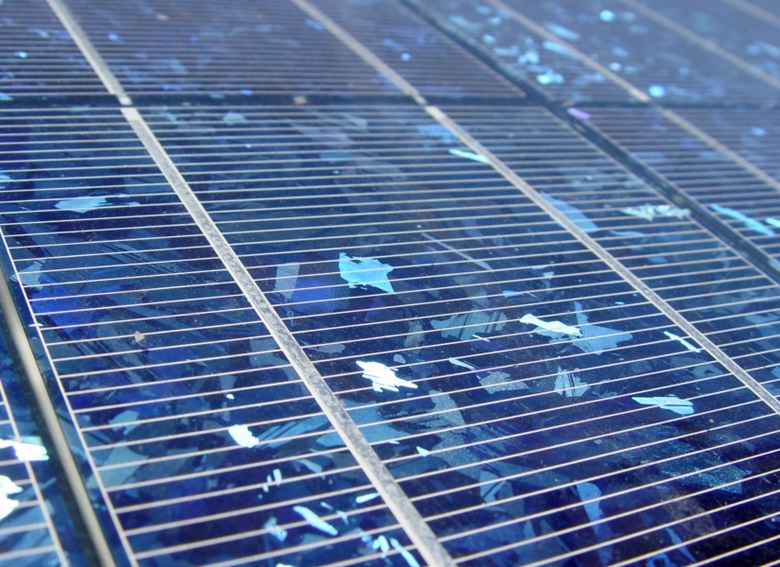Shining the light on Green Growth issues

The government has helped foster development of solar cells and panels in Malaysia through promotion and incentives such as tax breaks. Exports of solar cells and panels from Malaysia last year totaled 2.8 billion ringgit (USD 903 million), a significant proportion of Malaysia's environmental goods and services (EGS) sector.
The growth of EGS in the Asia-Pacific region was the subject of an APEC dialogue, held in Sendai, Japan in late September. The dialogue, which brought together APEC officials, experts from other international bodies and business representatives, was a chance to identify barriers to trade and investment in this important industry. It also focused on what work was being done across the various APEC fora to support development of the fast-growing sector, with the aim of better coordinating and collaborating on efforts. And it targeted what additional assistance APEC could provide in coming years to the industry.
The development of EGS in Malaysia was presented to the dialogue as a case study - one of several being conducted by member economies in an effort to paint a more accurate and comprehensive picture of the sector in the region. An analysis of services such as reducing water or air pollution, waste management, recycling and renewable energy, showed a small but vibrant and well structured industry that generated revenue in 2009 of 7.0 billion ringgit or (USD 2.25 billion).
EGS are devoted to solving, limiting or preventing environmental problems. Development of the sector is essential to slowing global warming and other forms of pollution and protecting natural resources. Environmental technologies, such as solar cells and panels, are also needed as the world's population grows, energy demands increase and supplies of more polluting forms of energy such as oil and coal dwindle.
Supporting trade of EGS, therefore, cuts across a number of APEC goals, including a commitment to sustainable and innovative economic growth. Both attributes are important components of APEC's new growth strategy, which will be presented to Leaders at their annual meeting, in Yokohama in November, and is committed to achieving "high quality" economic growth in the region.
The dialogue in Sendai heard that a myriad of APEC activities and projects are underway to assist development of EGS, including working to reduce non-tariff measures that act as obstacles to trade and investment in the industry. Companies face a range of difficulties when trading their products throughout the region and globally, including different regulations on testing and certification, arbitrary customs procedures and inadequate protection of intellectual property rights, the OECD's Dale Andrew told the dialogue. Standards are essential for ensuring quality, providing information to consumers and protecting them from damaged or dangerous goods. But the coexistence of different schemes in member economies for standards, testing and compliance can create major delays and increase costs for businesses, the dialogue heard.
Collaboration between APEC groups was therefore important to help reduce these types of obstacles, said Tony Fatua, from New Zealand's Ministry of Foreign Affairs and Trade, who chaired the dialogue.
"EGS is a subject that requires a holistic approach with APEC. This type of approach and collaboration is key to ensuring effective dissemination of information, helps to prioritise our efforts within APEC, minimises duplication, reduces costs while at the same time draws on the rich and technical expertise across APEC fora," he said.
APEC groups have joined forces, for example, to tackle harmonizing standards across the region on the energy efficiency of goods. In some economies, for example, cars are labeled to indicate how many litres of fuel will be required to drive 100km and the projected cost of fuel for an entire year. In other economies, electronic goods are rated for their efficiency with a star system. Some economies also use different testing methods and metrics to determine energy performance. This means that businesses wanting to access more than one market must test the same product in different ways for different economies. Refrigerators, for example, are subject to at least six different test methods worldwide, which apply different metrics and conditions, such as types of items stored inside and the room temperature in which the fridge is operating, to measure energy efficiency. Japan is currently leading work through the International Electrotechnical Committee to create a harmonized test method for fridges.
"Most APEC economies have mandatory minimum and or voluntary energy standards for key consumer and other products, which must be met by manufacturers. These energy standards contribute to more environmentally-friendly products that use less energy and emit less green house gases," explained Fatua.
"However different and sometimes confusing national standards could create obstacles and higher costs for businesses trading among APEC economies," he said.
APEC's Expert Group on Energy Efficiency and Conservation is conducting a project to determine how closely energy efficiency standards are harmonized in the APEC region and identify priority areas for action. It has targeted key household products such as televisions, computers, air conditioners, refrigerators, water heating and clothes washers and dryers uses. Findings from the research will help the expert group implement the Collaborative Assessment of Standards and Testing (CAST), which is working towards harmonizing test standards for priority appliances in the region.
"Ultimately greater convergence of standards among member economies can facilitate trade flows," Fatua said.
The dialogue was an initiative of APEC's Committee on Trade and Investment, and was held on the sidelines of the Third Senior Officials Meeting in Sendai. The outcome of the dialogue was presented to senior officials.

